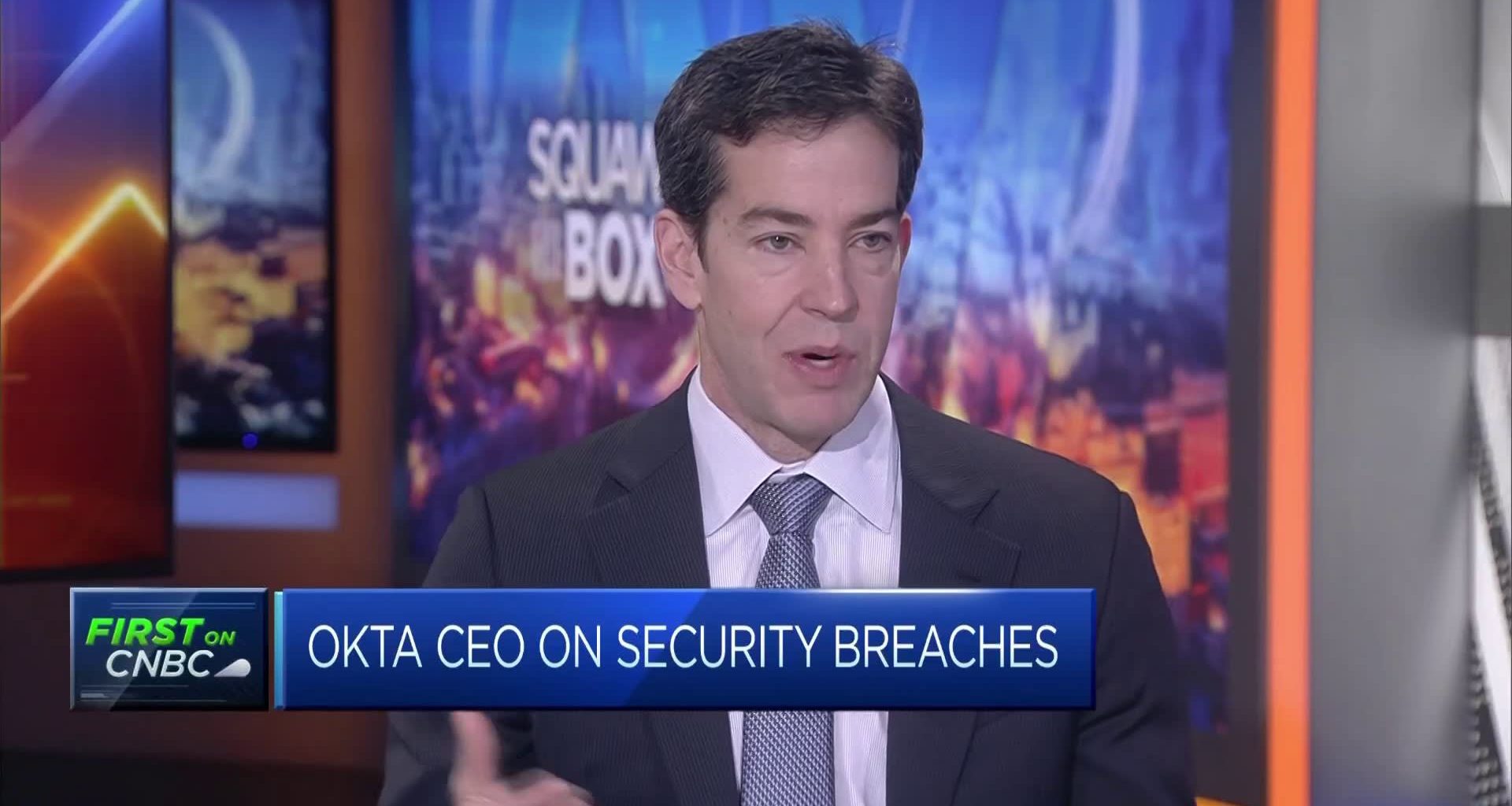This photograph shows a screen displaying the logo of Bard AI, a conversational artificial intelligence software application developed by Google, and ChatGPT.
Lionel Bonaventure | Afp | Getty Images
LONDON — Microsoft is handing over the development of all of its best artificial intelligence tools and software to OpenAI, according to one tech CEO — which could be a boon for arch-rival Google.
Todd McKinnon, CEO of identity security firm Okta, told CNBC on Friday that as Google looks to defend its position in search, it is “probably doing the best job of actually not having to outsource their R&D.”
He noted that the so-called transformers that power today’s generative AI technologies “all came from Google.”

Transformers are deep-learning models that learn context and thus meaning by tracking relationships in sequential data, such as words.
“This all came from Google, with DeepMind and the research,” McKinnon said. “I mean, the breakthrough was the research from Google, the transformers which are the algorithm that all these LLMs [large language models] are using to make these big advancements.”
Microsoft as an AI ‘consultancy’
McKinnon added that there’s a risk Microsoft’s position in AI becomes reduced to that of a “consultancy.” Microsoft was not immediately available for comment when contacted by CNBC.
It comes as a number of the firm’s top products — such as Copilot, the firm’s generative AI chatbot, and PCs that are equipped with generative AI software — incorporate tech made by OpenAI, the lab behind artificial intelligence chatbot ChatGPT.
Microsoft has plowed billions of dollars into OpenAI, with its total investment to date reportedly swelling to $13 billion. In Jan. 2023, the tech giant said its investment would “accelerate AI breakthroughs to ensure these benefits are broadly shared with the world.”
“It’s so bizarre,” McKinnon told CNBC. “Imagine working at Microsoft. OpenAI is over there making all the exciting stuff. It’s almost like Microsoft is going to turn into a consulting company.”
Still, Google has a mountain to climb if it’s going to achieve commercial success with its own AI investments.
Microsoft has effectively become the leader in the push toward foundation AI models given its investment in and partnership with OpenAI. This has raised concerns that Google’s position in search could be undermined, as internet users increasingly turn to ChatGPT and other AI chatbots for their search needs.
Google’s own AI efforts, meanwhile, have been beset by a number of public blunders.
Last year, when Google unveiled its Gemini AI chatbot (called Bard at the time), an ad on social media site X showed it giving the wrong answer to a user question. More recently, Google Gemini, as the product is now known, started creating ahistorical images from prompts about history.
Google subsequently pulled its Gemini image generator tool for pictures of people and is yet to reinstate the product while it investigates a fix.
Huge investments needed to succeed
McKinnon noted that AI is a rare segment of technology that has stemmed from substantial backing from major tech giants, rather than organic investments into new product cycles, as was the case with the PC and cloud computing.
“It’s different than other generations of technology like with personal computers, where it was not necessarily the biggest companies in the world that had the advantage, because the whole thing about personal computers is they were truly disruptive in the sense that they were almost toys,” McKinnon said.
“There’s no new AI model that’s like a toy. The only reason OpenAI can get it working is because the great R&D that they needed — $10 billion from Microsoft, to run the model — that wasn’t like a disruptive thing, that was a $10 billion investment.”
He added that Big Tech’s mammoth investments into AI create some competition concerns.
The “biggest risk” McKinnon sees for the cybersecurity industry going forward is that AI issues stemming from the digital giants — such as disinformation — will “stunt the progress in technology.”
“The potential [for] artificial intelligence is really high,” he said, but added: “I actually expect the swing of regulation to go so far that we leave only the biggest, most powerful companies in control of AI.”
Read More: World News | Entertainment News | Celeb News
CNBC








